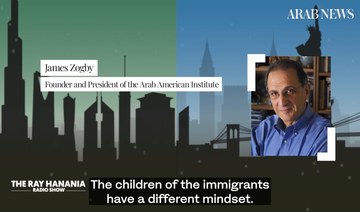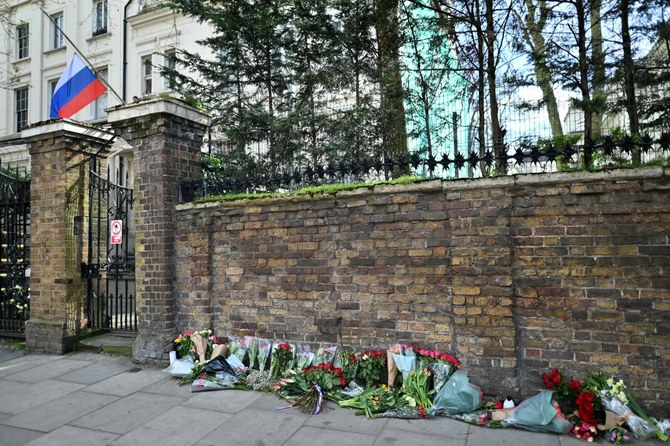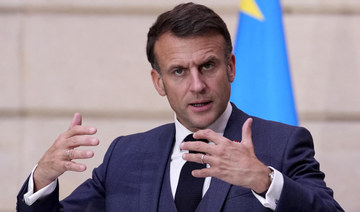CHICAGO: Iowa’s first elected Arab-American legislator, Sami Scheetz, said that he believes candidates who run for statewide offices should focus on local issues and leave Middle East issues to national office-holders.
In many instances, Arab and Muslims elected to local and state office have sought to address or impact foreign policy issues in the Middle East.
But Scheetz, whose mother is Syrian and Palestinian and whose father is white ethnic, is very proud of his Arab-American heritage and culture, which he said has had a long presence in Iowa, a Midwest, mostly farmland, state.
“Having that multicultural background I think was something that was extremely formative in shaping how I viewed the world and how I viewed politics, and through the lens that I view advocacy and organizing,” Scheetz told Arab News.
“I think having that different experience is extremely important to the work that I do at the Iowa House of Representatives. And being elected as the first Arab-American of the House of Representatives, or the legislature in general, here in Iowa, was extremely heartwarming for me. Because we in Cedar Rapids have over a 130-140-year history of a really prominent and really proud Arab-American community. We have the oldest mosque in North America, in Cedar Rapids. And in my legislative district we have an Arab-Christian church that has been around for generations. It is a part of the community here in Cedar Rapids that has been vocal, prominent and a group that I am very, very proud to be a product of.”
Scheetz, whose parents work helping immigrants, added: “Obviously growing up in an Arab household and having Arab relatives, there is no way you can get around not knowing what is going on in the Middle East and hearing a thousand different opinions on what is happening and on which country. It is something that is always in the back of my mind.”
The National Park Service identifies the Mother Mosque in Cedar Rapids, which dates from Feb. 15, 1934, as the first building to house Muslim services in America.
A Democrat, Scheetz was elected in November 2022 to represent the Iowa 78th House District, which has about 60,000 constituents and includes the city of Cedar Rapids. He said that his Arab heritage was not a major campaign issue in Iowa’s legislative race, although it was “extremely important” to him.
Scheetz said that voters he spoke with were first and foremost concerned about local issues in that state election and not on Middle East politics, which he said is something that states should not engage in and should leave to Federal office-holders.
“When I knock on doors and listen to people, even Arab-Americans included, the majority of what I heard about were things that we all talk about on a state level and national level campaign — it was our public education system, it was our health care system. It was at the time record inflation that people were facing and how that was impacting their family’s ability to buy basic things like groceries and gasoline or baby formula for younger parents. Those were the conversations that I was hearing over and over again and that is mostly what I focused on when I was running. It was focused mostly on Iowa in the Iowa legislature,” Scheetz said.
“That was the kind of message that I was discussing and listening to when I talked to voters. Middle East politics; I can argue not just the Middle East but foreign policy in general is not something that is on top of mind for a majority of American voters.”
He said Arab-Americans who do run for legislative seats or even local public offices should make issues that directly impact their constituents and their districts their priority and leave foreign policy to the nationally elected members of Congress and to the president.
“It just shouldn’t be the role of a state legislature to get involved in directly, really important US national security and foreign policy decisions. That is what we elect our Congress people for, our senators, and that is why we elect our president to lead and enact those foreign policy objectives. And there is a host of reasons why different communities including the Arab community should be organizing and activating around these issues,” Scheetz said.
Scheetz won without ever holding prior public office. He graduated from Georgetown University and worked on the re-election campaign of former president, Barack Obama. His experience also includes working to support US President Joe Biden, but he became familiar with many Middle East issues through his family life and while working in Dubai for the US State Department.
“It is an incredible part of my identity that I am extremely proud of. And I am very proud of, like I mentioned earlier, being the first Arab-American in our legislature from the community in Cedar Rapids, that has had such an old and proud Arab-American community,” Scheetz said.
“So, it is something that I think about all the time. It is something I am very proud of. But when it comes to the daily work of the state legislature, big foreign policy issues and issues like the census are not in our purview ... You wouldn’t want the state of Alabama, the state of Iowa and the state of Illinois all having different foreign policies on some of these (Middle East) questions that are extremely important to US National Security and Foreign policy.”
Scheetz criticized the failure of the US Census to identify Arab-Americans but said that they have been a strong presence in Iowa since the 19th century, with Christian and Muslim immigrants initially coming in large waves from Lebanon and Syria.
“It’s more of a federal issue that the United States Congress needs to address because the census is federal. Now that we have more Arab-American representation in Congress, I think hopefully that is something that can get passed,” he said of the absence of an Arab category on the US Census.
But he stressed: “Most foreign policy is in the purview of Congress and the president.”
Scheetz made his comments during an appearance on The Ray Hanania Radio Show, broadcast on the US Arab Radio Network and sponsored by Arab News, the voice of a changing region. The audio podcast of the interview is available at ArabNews.com
You can listen to the radio show’s podcast by visiting ArabNews.com/rayradioshow.























